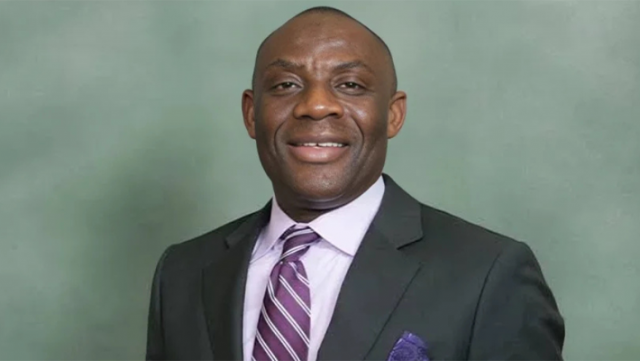The federal government has granted operational licenses to 11 newly approved private universities to enhance access to quality tertiary education.
The Minister of Education, Tunji Alausa, at the presentation ceremony for the licenses held in Abuja on Wednesday, stated that this followed the approval from the National Universities Commission (NUC).
The newly accredited universities include: New City University in Aiyetoro, Ogun State; Lens University in Ilemona, Kwara State; and Kevin Ezeh University in Mgbowo, Enugu State.
Other institutions include Southern Atlantic University in Uyo; University of Fortune in Igbotako, Ondo State; Minaret University in Ikirun, Osun State; and Abdulrasaq Abubakar Toyin University in Ganmo, Kwara State. Additional institutions listed are Monarch University in Iyesi Ota, Ogun State; Tonnie Iredia University of Communication in Benin, Edo State; Isaac Balami University of Aeronautic and Management in Lagos State; and Eranova University in Kuje, FCT.
Alausa remarked that the approval aligns with Nigeria's education sector renewal initiative aimed at revitalizing the country’s educational system.
He emphasized that this event not only celebrates the achievements of the institutions but also serves as a renewed call to action for building a future-ready, globally competitive Nigerian university system.
He underscored the necessity of directing Nigeria’s higher education toward priority fields such as STEMM (Science, Technology, Engineering, Mathematics, and Medical Sciences).
“Nigeria has an oversupply of social science graduates. What we now require are graduates equipped with problem-solving skills, capable of driving industries, constructing infrastructure, and enhancing lives. We must confront an uncomfortable reality that, despite having 159 licensed private universities, many fail to meet the quality standards expected in Nigeria,” he expressed.
Alausa further stated that licensing should not merely be symbolic but should have a meaningful impact.
To tackle this issue, he mentioned that the NUC is conducting a thorough review of quality assurance mechanisms to ensure that all licensed institutions, both public and private, operate as genuine centers for learning, innovation, and research.
He also encouraged private universities to cooperate with each other and establish international partnerships, highlighting Nigeria’s potential as a hub for global educational collaborations.
The minister additionally disclosed that, following presidential directives, numerous universities that had been awaiting approval for over four years finally received their licenses after a comprehensive evaluation process completed within three years.
“Private universities must rise to the challenge of providing high-quality, relevant education that aligns with the requirements of a modern economy. With support from regulatory bodies and a renewed dedication to excellence, it is expected that the newly approved institutions will play a transformative role in shaping the nation’s future leaders and innovators,” he articulated.
The executive secretary of NUC, Abdullahi Ribadu, noted the increasing significance of private universities as complementary partners to public institutions, particularly in meeting the educational needs of Nigeria’s youthful population.
Ribadu explained that since the liberalization of university education in 1999, private universities have greatly contributed to expanding the country’s academic landscape. “From merely 49 universities in 1999, of which 23 were private, Nigeria now has 298 universities, with 159 (53.3 percent) being privately owned. The driving force behind this growth is the heightened engagement of the private sector,” he stated.
He elaborated that the licenses granted are provisional, valid for three years, during which institutions must adhere to strict quality standards.
“The provisional status will be closely monitored by the NUC, and full licenses will only be awarded after a thorough evaluation of each institution’s adherence to regulatory standards,” he mentioned.
To ensure that institutions are prepared for academic operations, the NUC chief announced that a mandatory resource verification exercise would be conducted for all academic programs.
Speaking on behalf of the proprietors, Jimoh Ibrahim, from the University of Fortune in Igbotako, Ondo State, urged the NUC to eliminate barriers hindering Nigerian universities from collaborating more effectively with global institutions.
Ibrahim stressed the importance and urgency of fostering international academic partnerships to drive innovation, skill development, and national progress. Similarly, Tony Iredia, from Tonnie Iredia University of Communication in Benin, appealed to the federal government to ensure that the moratorium period is not prolonged.
Iredia also suggested that Nigerian universities may struggle with research due to inadequate communication of research findings.




















